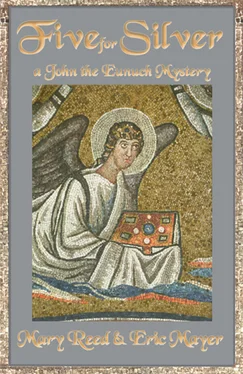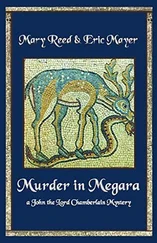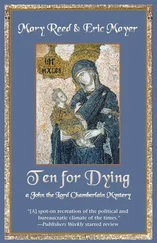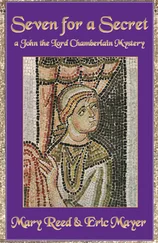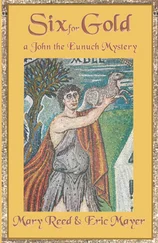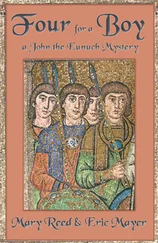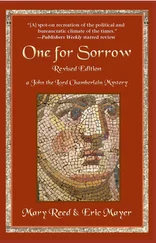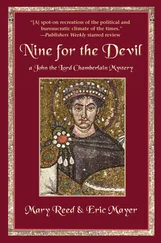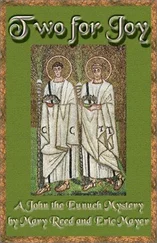Mary Reed - Five for Silver
Здесь есть возможность читать онлайн «Mary Reed - Five for Silver» весь текст электронной книги совершенно бесплатно (целиком полную версию без сокращений). В некоторых случаях можно слушать аудио, скачать через торрент в формате fb2 и присутствует краткое содержание. Год выпуска: 2011, ISBN: 2011, Издательство: Poisoned Pen Press, Жанр: Исторический детектив, на английском языке. Описание произведения, (предисловие) а так же отзывы посетителей доступны на портале библиотеки ЛибКат.
- Название:Five for Silver
- Автор:
- Издательство:Poisoned Pen Press
- Жанр:
- Год:2011
- ISBN:9781615951703
- Рейтинг книги:3 / 5. Голосов: 1
-
Избранное:Добавить в избранное
- Отзывы:
-
Ваша оценка:
- 60
- 1
- 2
- 3
- 4
- 5
Five for Silver: краткое содержание, описание и аннотация
Предлагаем к чтению аннотацию, описание, краткое содержание или предисловие (зависит от того, что написал сам автор книги «Five for Silver»). Если вы не нашли необходимую информацию о книге — напишите в комментариях, мы постараемся отыскать её.
Five for Silver — читать онлайн бесплатно полную книгу (весь текст) целиком
Ниже представлен текст книги, разбитый по страницам. Система сохранения места последней прочитанной страницы, позволяет с удобством читать онлайн бесплатно книгу «Five for Silver», без необходимости каждый раз заново искать на чём Вы остановились. Поставьте закладку, и сможете в любой момент перейти на страницу, на которой закончили чтение.
Интервал:
Закладка:
Crinagoras sniffed. “This dreadful smoke is burning my eyes. I am not ungrateful for the work, you understand. It’s just that I feel I’m neglecting my duties toward my dear Eudoxia. It’s been a while since I’ve composed a poem for her and even longer since I sold one.”
They walked through the miniature city of tombs. A bird sang, bees buzzed in the grass.
Crinagoras stared thoughtfully in the direction of the inner wall from which they had just ridden. “If it weren’t for the smoke, it’d be hard to imagine what we’ve just left. All those deserted streets, the endless lamentations reminding us how near we are to death.”
“Not to mention it is right underfoot.”
Crinagoras looked down hastily. “How could I forget!”
Strolling along, they stopped to admire other examples of the poet’s work.
“‘Do you caress my cold stone, tickle my mossy epitaph with your warm fingers? Alas, I know not, for I am dead,’” Crinagoras declaimed.
“I like this one,” Anatolius said. “‘You have journeyed far, now here you are.’”
“It is just as I told you,” Crinagoras declared suddenly, seemingly in response to a conversation he’d been carrying on in his head. “You scoffed at the notion, but you are blessed because Lucretia is still alive. With life there is hope and with the odious senator on his deathbed, you may well be reunited with your beloved after all. Fortuna smiles on you.”
“Yet why on me and not on Balbinus? Am I more deserving?” Anatolius smiled wanly. “That is a question not worth asking, for it is unanswerable.”
“It’s the unanswerable questions that are the most interesting. Besides, I can tell you why you deserve Fortuna’s favor. You are a man of tender feelings, my friend, just like myself.”
Anatolius came to a halt. “I can’t help my feelings, Crinagoras. Yet it’s wrong to wish for happiness at another’s expense.”
“The senator stole her from you. Her family arranged the marriage. She didn’t want it. Would you wish Lucretia to be deprived of her happiness as well?”
“I admit it,” Anatolius confessed shamefaced. “I am hoping her husband will die.”
“Believe me, Anatolius, I know how it is. Lucretia is the sun in your sky. When she married, I feared you might throw yourself into the sea.”
“I try not to recall that time. Not to mention it’s just as likely the fellow who sells me wine threw himself into the sea when I regained my senses and his sales declined so drastically.”
They resumed walking, completing a circle around the lonely space. Not far from the narrow road by which they had entered, a particularly unusual tomb caught Anatolius’ eye. It resembled the Great Church, but reached only as high as his chest.
“Come along.” Crinagoras sounded impatient. “We don’t have time to dawdle over every monument in the place. Remember, it’s some distance yet to Nereus’ estate.”
Anatolius’ gaze slid across the miniature edifice. “You’re in a hurry all of a sudden. I see there’s an inscription on this tomb. It’s one of yours, isn’t it?”
“Well, yes, but do hurry up. At this rate it’ll be dark before we even get to the estate.”
“What is it? Why don’t you want me to read it?” Anatolius bent slightly to make out the epitaph carved into the small church replica. “‘I am only a dead dog, but my tomb is more magnificent than the candlemaker’s.’”
***
The muscular, bare-chested man unloading amphorae from a wagon parked outside Nereus’ villa looked up as Anatolius and Crinagoras approached. His hair was cropped to a black shadow, matching poorly shaven cheeks.
“I am Cador, assistant to the master’s house steward. How can I assist?” The man’s Greek was hesitant.
“We’re here to ask a few questions concerning your master’s death,” Anatolius began, trying to remember how John conducted similar interviews. “Could we speak to the steward?”
He glanced toward the doorway, flanked by two massive, elaborately carved columns. The house was otherwise unadorned, a low, plaster-faced structure with a colonnade running down one side. It stood in the shade of a variety of short ornamental trees.
“Calligenes is gone. I am in charge until the master’s legal affairs have been concluded.”
“Your accent tells me you have traveled far, Cador,” Crinagoras broke in.
The man nodded. “You are most perceptive, sir. It’s been a long time since I last saw Bretania’s rocky shore.”
Anatolius scowled in annoyance. He’d taken the man’s stilted speech and hesitancy as indicating he was slow witted. Now he noticed Cador had the reddened, peeling skin of those used to less sunny climes. “How did you come to work for Nereus?” he asked quickly, before Crinagoras could beat him in extracting more revelations.
“I was a tin streamer, sir. The brooks I panned were cold and seemed to get colder every year. Eventually I crossed the water and before I knew it, I was in Constantinople. Master Nereus was engaged solely in the tin trade at the time and gave me a job because of my experience.”
Cador spoke as if he were weighing every word. The hard stare he directed at his visitors made it obvious to Anatolius that the man was highly suspicious. Extracting information would be as difficult as panning tin from a stream.
“Well,” Anatolius said, thinking flattery might work and drawing on the few comments John had made about his sojourn in that distant land. “I have never been to Bretania, although a friend of mine was there many years ago. He described it as wild but beautiful.”
“He was correct,” Cador replied, his gaze never wavering. “Too cold, though. But that is enough reminiscing. There is too much work and too few hands. I have my own tasks and all the tasks my superiors left undone besides.” He pulled another amphora off the back of the wagon. The brilliant sun glistened off rivulets of perspiration running down his sides.
“We just want to ask a few questions about your master’s final hours,” said Crinagoras. He was sweating too, or perhaps, more correctly, stewing. Swathed in his heavy toga, he didn’t appear to be enjoying the heat as much as Cador. “What exactly happened?”
Cador set the amphora down. As he looked up at Crinagoras his eyes narrowed. “My apologies, sir. Now I recall, you were at the master’s bedside. I did not recognize you in that strange garb.”
Crinagoras bit his lip and flapped the folds of his toga sorrowfully.
When Cador didn’t deign to actually answer the query, Anatolius took the chance of asking again. For a moment, caught in Cador’s insolent glare, he was sorry he had.
Then, however, perhaps remembering his station, Cador nodded and spoke. “I can’t tell you much about it, sir. The master was sinking fast, but insisted on seeing all his callers. There was a seller of antiquities and oracles. The master had done business with him before. This time Aristotle arrived with a very large oracular head.”
Anatolius expressed surprise.
Cador allowed himself a slight smile and then continued. “The master asked it what course his illness would take. He was told, ‘By tomorrow it will be forgotten.’”
“A delightful bit of ambiguity,” pointed out Crinagoras. “How did this strange oracle make its predictions?”
“It was a hollow brass head of hideous visage,” Cador replied. “The method used was placing a lantern inside the head and then interpreting the shadows it cast on the wall.”
“An interesting notion,” Anatolius put in. “What happened next?”
“Less than an hour later, the master took a turn for the worse.”
“That was when he decided to execute an oral will?”
Cador nodded. “First he asked for Calligenes, the house steward, but he was ill also. We couldn’t rouse him, so I served in his stead.”
Читать дальшеИнтервал:
Закладка:
Похожие книги на «Five for Silver»
Представляем Вашему вниманию похожие книги на «Five for Silver» списком для выбора. Мы отобрали схожую по названию и смыслу литературу в надежде предоставить читателям больше вариантов отыскать новые, интересные, ещё непрочитанные произведения.
Обсуждение, отзывы о книге «Five for Silver» и просто собственные мнения читателей. Оставьте ваши комментарии, напишите, что Вы думаете о произведении, его смысле или главных героях. Укажите что конкретно понравилось, а что нет, и почему Вы так считаете.
